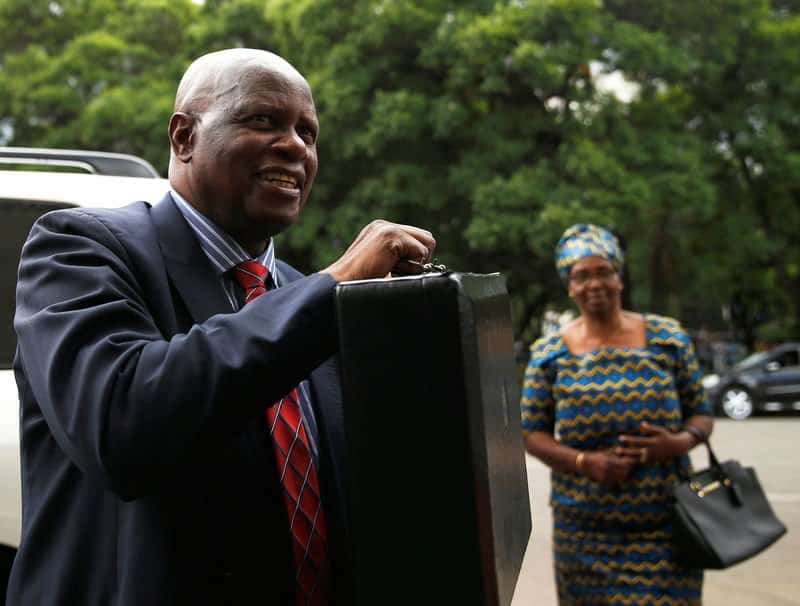By Byron Mutingwende
Finance minister Patrick Chinamasa has said Zimbabwe still suffers from low business and investment confidence that makes it difficult to attract inward investment flows necessary to generate foreign currency to revive the economy.
Chinamasa made the remarks at a breakfast meeting organised by the Centre for Risk Analytics and Insurance Research held under the topic “Zimbabwe’s New Economic Trajectory: Renaissance and Growth” at Meikles Hotel in Harare on 17 January 2018.
“The low confidence levels are a reflection of unsustainable fiscal deficit; current account deficits; debt overhang; low business competitiveness; and low production across all the economic factors,” he said.
The minister said as a result, the country experienced high levels of unemployment, deindustrialisation, rising informal sector activities, as well as foreign currency and cash shortages.
Overall, he said the economy grew, in real terms, by an estimated 3, 7% in 2017 due to strong performance in agriculture, mining and electricity sectors. Real economic growth is projected at 4, 5% as a result of enhanced support towards agriculture; and effective implementation of government policies.
On inflation, the finance minister said price developments have been worrisome particularly at a time when all efforts are towards rebuilding the country.
“The multiplier pricing system prevailing in the country is responsible for rising domestic prices that are negatively affecting the welfare of our people. Government has since established a committee under the leadership of the Vice President Retired General C. Chiwenga to clearly understand the triggers of unsustainable price increases,” Chinamasa said.
However, the banking sector remains stable on the back of adequate capitalisation, improved earnings and satisfactory asset quality. The critical pillars of the reform agenda are market confidence; discipline in the management of public finances and the economy as a whole; as well as policy consistency, clarity, credibility and predictability.
To restore market confidence is implementing measures to deal with cash shortages, unsustainable fiscal budget deficit, as well as corruption and indiscipline. It is focusing on international re-engagement; creating an investor-friendly environment; and ensuring credibility in the conduct of the 2018 harmonised general elections.
In pursuit of addressing the liquidity crisis, there is need to increase production and exports; promote the use of multicurrency and reduce over-reliance on the US dollar; and restore market confidence by attending to market distortions that are discouraging savings.
The Reserve bank of Zimbabwe has arranged a Nostro Stabilisation Facility with Afreximbank that should help reduce the queues for international payments. On foreign exchange generation, Chinamasa said exports remain the major source of foreign exchange earnings. However, 86% of export proceeds are coming from mining and tobacco.
A number of measures are being implemented to grow and diversify the country’s export basket. These include fiscal incentives targeting other sectors such as horticulture, tourism and manufacturing outside mining and tobacco. Plugging leakages in exports and export receipts; expediting the removal of export impediments which include intertwined regulations, multiple and fragmented export documentation points; and enforcing the prolonged amnesty on repatriation of externalised funds and assets are some of the critical strategies.
